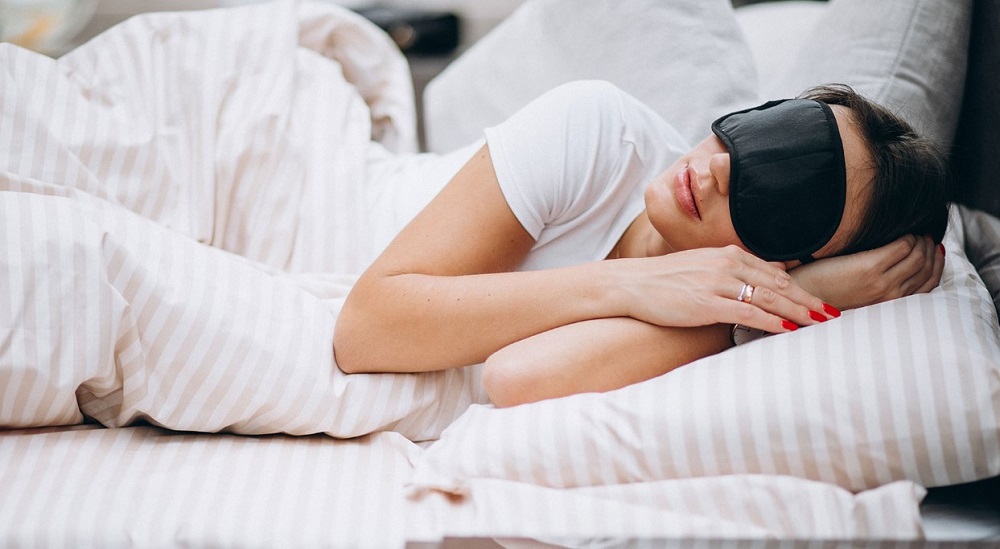Good sleep hygiene is crucial for achieving a restful night’s sleep and maintaining overall health. In this article, we will dive into practical tips and strategies to improve your sleep hygiene, which can help you feel more energized, focused, and rejuvenated.
What is Sleep Hygiene?
Sleep hygiene refers to the practices and habits that contribute to consistently high-quality sleep. It involves optimizing your sleep environment, routine, and lifestyle to ensure you are getting enough rest and improving the quality of your sleep. Proper sleep hygiene can help regulate your sleep cycle, reduce the risk of insomnia, and boost overall well-being.
Why is Sleep Hygiene Important?
Improving your sleep hygiene can have a positive impact on various aspects of your health:
- Boosts Mood: Better sleep contributes to emotional stability and can help reduce stress and anxiety.
- Enhances Focus: Well-rested individuals tend to perform better in daily tasks and have improved cognitive function.
- Supports Physical Health: Sleep plays a crucial role in immune function, hormone regulation, and cell repair.
- Prevents Sleep Disorders: Consistent sleep hygiene can help reduce the risk of conditions like insomnia and sleep apnea.
Steps to Improve Sleep Hygiene
Here are some actionable tips that can help you enhance your sleep hygiene and get better rest every night.
1. Establish a Consistent Sleep Schedule
One of the most effective ways to improve your sleep hygiene is by setting a regular sleep schedule. Try to go to bed and wake up at the same time every day, even on weekends. Consistency helps regulate your body’s internal clock, making it easier to fall asleep and wake up naturally.
2. Create a Relaxing Bedtime Routine
Engaging in relaxing activities before bedtime can signal your body that it’s time to wind down. Consider activities like:
- Reading a book
- Practicing deep breathing or meditation
- Listening to calming music or white noise
- Taking a warm bath or shower
Avoid stimulating activities, such as checking emails or using your phone, as these can increase alertness and make it harder to fall asleep.
3. Limit Screen Time Before Bed
The blue light emitted by phones, tablets, and computers can disrupt the production of melatonin, a hormone that helps regulate sleep. Try to avoid using screens for at least 30 minutes before bed. Instead, opt for reading or listening to a podcast to wind down.
4. Optimize Your Sleep Environment
Your bedroom should be a sanctuary for sleep. The following changes can make a huge difference:
- Keep your bedroom cool, dark, and quiet: Ideally, your room should be between 60-67°F (15-19°C). Use blackout curtains or an eye mask to block out light.
- Invest in a comfortable mattress and pillows: Ensure that your mattress provides the right support for your body, and that your pillows are comfortable and supportive.
- Reduce noise: Consider using earplugs or a white noise machine to block out disturbing sounds.
5. Be Mindful of What You Eat and Drink
Your diet can play a significant role in the quality of your sleep. Follow these tips:
- Avoid caffeine and nicotine: Both of these stimulants can interfere with your ability to fall asleep. Try to avoid them for at least 4-6 hours before bedtime.
- Limit heavy meals: Eating large, spicy, or fatty meals before bed can lead to discomfort and indigestion. Opt for light snacks if you’re hungry.
- Stay hydrated: Dehydration can cause discomfort during sleep, but try to avoid drinking too much fluid right before bed to reduce the chances of waking up for bathroom trips.
6. Exercise Regularly
Physical activity can help improve sleep quality by reducing stress and anxiety and promoting deeper sleep. However, avoid vigorous exercise too close to bedtime, as it can have the opposite effect and make it harder to fall asleep.
7. Manage Stress and Anxiety
Mental health plays a significant role in sleep quality. If you’re struggling with stress or anxiety, it can be helpful to implement mindfulness or relaxation techniques during the day. Some strategies include:
- Journaling: Writing down your thoughts before bed can help clear your mind.
- Mindfulness meditation: Practice mindfulness or yoga to relax your body and mind.
- Cognitive Behavioral Therapy for Insomnia (CBT-I): This therapy can help individuals address negative sleep patterns and thoughts.
8. Get Exposure to Natural Light During the Day
Exposure to natural light, especially in the morning, helps regulate your body’s sleep-wake cycle. Try to spend time outdoors during the day and avoid dimly lit rooms. This helps increase melatonin production at the right time for sleep.
9. Limit Naps During the Day
While naps can be refreshing, long or late naps can interfere with your ability to fall asleep at night. If you need to nap, keep it brief (20-30 minutes) and earlier in the afternoon to prevent disruption to your nighttime sleep.
10. Know When to Seek Professional Help
If you consistently struggle with poor sleep despite implementing these changes, it may be time to consult with a healthcare professional. They can help identify underlying causes, such as sleep disorders like insomnia, sleep apnea, or restless leg syndrome, and provide guidance on appropriate treatment options.
Final Thoughts on Improving Sleep Hygiene
Good sleep hygiene is an investment in your overall health and well-being. By making small, consistent changes to your environment, routine, and lifestyle, you can significantly improve the quality of your sleep. This, in turn, will enhance your mood, productivity, and long-term health. Start incorporating these tips into your daily life, and you’ll soon be reaping the benefits of better sleep.
Remember, sleep is just as important as diet and exercise when it comes to maintaining a healthy lifestyle. Prioritize your rest and experience the transformative effects of proper sleep hygiene.
By focusing on these practical and sustainable habits, this article will not only provide valuable insights to readers, but it will also be highly searchable for those looking to improve their sleep hygiene.










